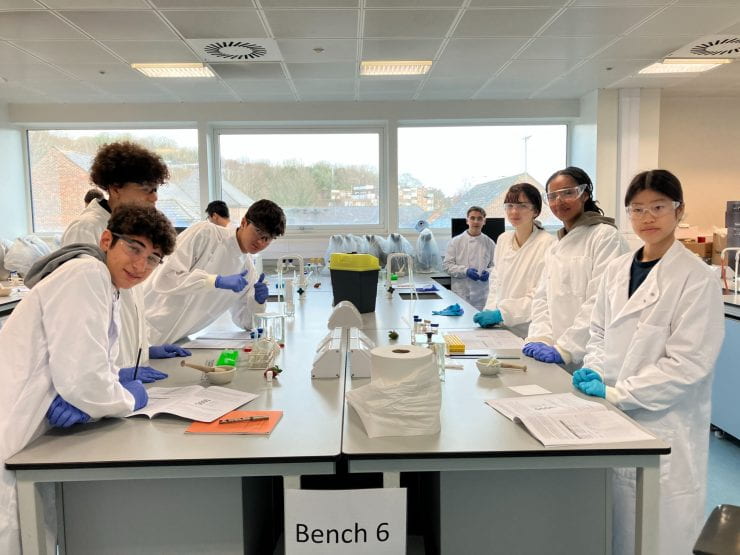I have learnt many facts and experiments from various sciences as well as the process of applying to university and what it maybe like. I found the experiments enjoyable and the talks on university and post 16 options useful
Lucas
The university outreach team organised a Science Saturday Club, which ran over four Saturday mornings earlier in the year. 27, Sussex-based year 10 and 11 students from schools as far away as Littlehampton and Hastings attended the club held on Saturday mornings, which combined lectures and lab sessions run by academics and PhD students interspersed with information and guidance about post-16 options, a tour of our Moulsecoomb campus and plenty of opportunity to engage with three Applied Science student ambassadors supporting the club. The club, which was free to attend, aimed to show students what studying science at university is like.
Each week, they covered a different topic. The first was called The Earth from Above, which was run by PhD student Joe Agate on the practical use of drones. Students learnt how Joe uses drones in his fieldwork over the salt marsh of Shoreham and how drones are now used worldwide, from delivering blood in remote areas of Rwanda to the planned use of futuristic drone taxis in megacities. The students could handle various drones ranging in size and price and had the opportunity to fly a small drone if they wished.
Next up was Dr Louise MacKenzie, Principal Lecturer Cell and Molecular Biology, who taught the intriguingly titled – Unlocking the Secrets: Sort your Molecules Out. In this lab-based session, students extracted pigment from various green salad leaves and DNA from strawberries.
Dr Joao Silva enthusiastically taught students about fungi in a lab session entitled – The Entangled Life of Fungi: the Good, the Bad and the Ugly. Joao gave a lecture on the history of microbiologists, followed by a lab practical. Joao and the excellent lab technicians provided a fantastic resource of samples for the students to see each growth stage of lab-grown fungi. Every student could take home a bag of sawdust containing oyster mushroom spores to incubate and then fruit at home.
The final session, taught by PhD student Graihagh Guille, was entitled The Secrets of the Genes. Here, students made PCR tests with equipment generously donated by New England Biolabs (NEB). They were taught the techniques and theory behind PCR tests, how to use pipets, set up gels, and analysed the results. Graihagh also talked about her journey through education, which led to her studying for her PhD at Brighton.












I enjoyed the lab work we did and I liked how in the last two we had something to take home. I also liked how some of them linked to what I’m doing in school, so it helped me get a better understanding.
Jasmin
It has given me a greater understanding of lab work but also science. The fungi was absolutely brilliant.
Megan
I have learnt how to grow mushrooms which I found very interesting and I enjoyed getting a better understanding about doing science in the future.
Evie
I learnt quite a lot about UCAS and different parts of university and lectures. Fungi was excellent and so was the PCR lab session.
Maria

Published by